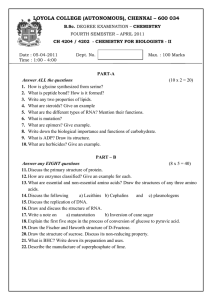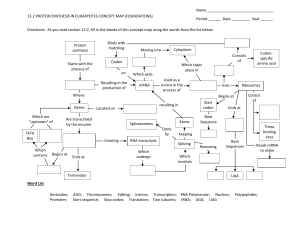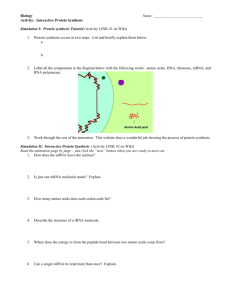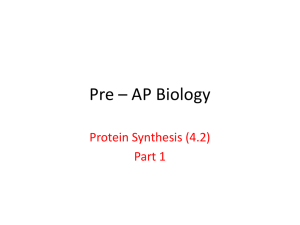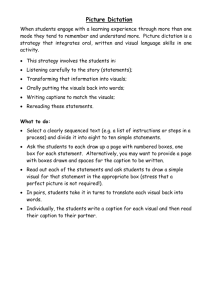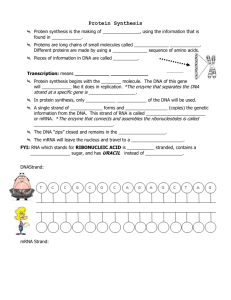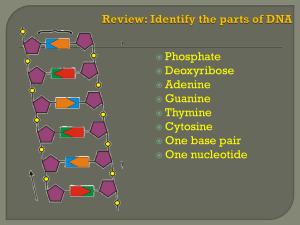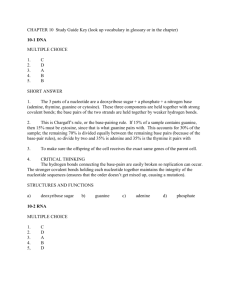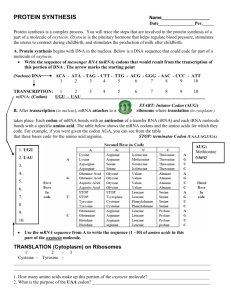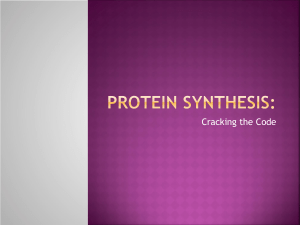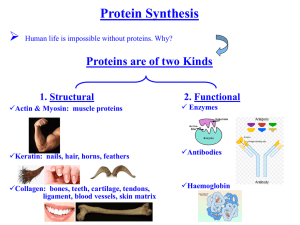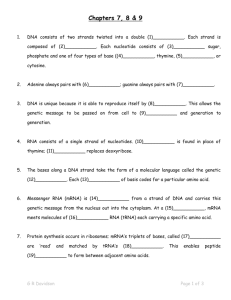FLASHCARDS - kehsscience.org
advertisement
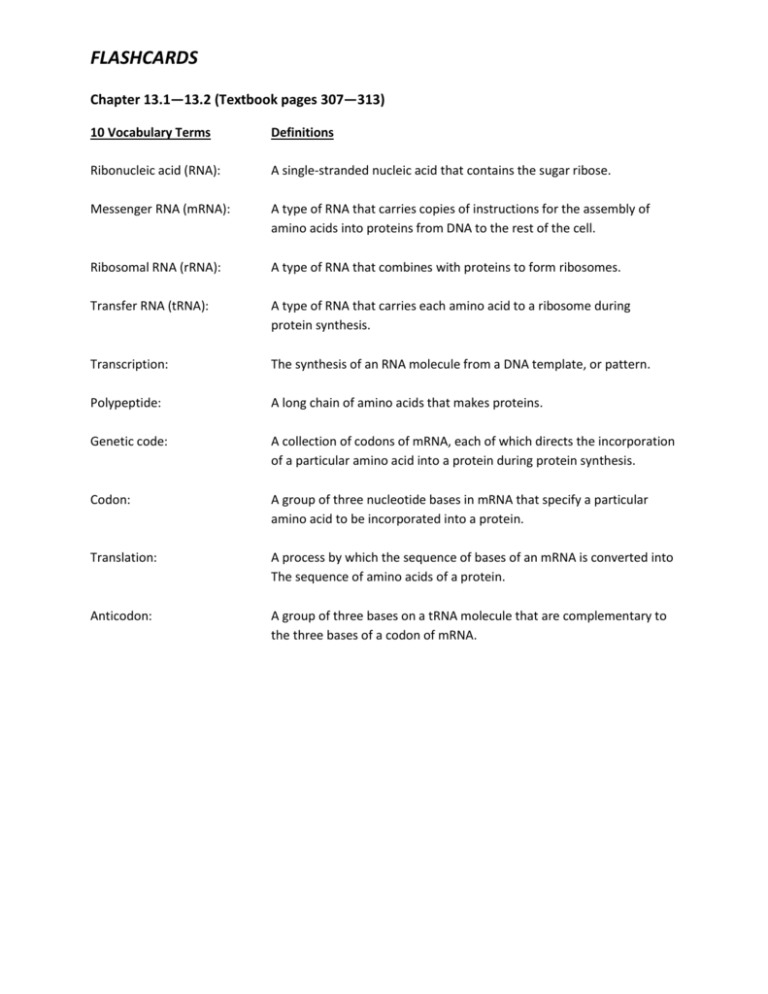
FLASHCARDS Chapter 13.1—13.2 (Textbook pages 307—313) 10 Vocabulary Terms Definitions Ribonucleic acid (RNA): A single-stranded nucleic acid that contains the sugar ribose. Messenger RNA (mRNA): A type of RNA that carries copies of instructions for the assembly of amino acids into proteins from DNA to the rest of the cell. Ribosomal RNA (rRNA): A type of RNA that combines with proteins to form ribosomes. Transfer RNA (tRNA): A type of RNA that carries each amino acid to a ribosome during protein synthesis. Transcription: The synthesis of an RNA molecule from a DNA template, or pattern. Polypeptide: A long chain of amino acids that makes proteins. Genetic code: A collection of codons of mRNA, each of which directs the incorporation of a particular amino acid into a protein during protein synthesis. Codon: A group of three nucleotide bases in mRNA that specify a particular amino acid to be incorporated into a protein. Translation: A process by which the sequence of bases of an mRNA is converted into The sequence of amino acids of a protein. Anticodon: A group of three bases on a tRNA molecule that are complementary to the three bases of a codon of mRNA.
